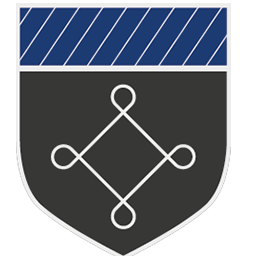Maths
“Pure mathematics is, in its way, the poetry of logical ideas”
Albert Einstein
Curriculum Intent
We believe all students deserve a Maths curriculum that is ambitious and rich in knowledge. We provide students with a foundation to understand the world, reason mathematically, appreciate the beauty and power of maths, and develop a sense of enjoyment and curiosity about the subject.
In line with the Trust’s vision, we want all young people to ‘make outstanding progress’ through a Maths curriculum that aims to provide students with time and opportunities to fully explore mathematical concepts. We aim to develop their ability to identify, connect and apply ideas in new and complex ways to develop a deepened understanding that builds their confidence and developing resilience. Throughout their five-year mathematical journey, students will develop a deep appreciation of maths that is essential to everyday life, and necessary for financial literacy and most forms of employment.
Careful consideration has been, and continues to be, put into developing the Maths curriculum; the curriculum spirals and is planned and sequenced so that new component knowledge and skills build on what has been previously taught; revisiting key concept areas throughout years 7 -11 is routine. Algebra, Number, Ratio and Proportion, Statistics and Probability constitute the main areas of the maths curriculum.
Students will be taught units of work that cover and go beyond the requirements of the national curriculum and this should enable students to:
- Fluency; students become fluent mathematics, through a variety of tasks with increasingly complex problems over time, so that students develop conceptual understanding and the ability to recall and apply knowledge rapidly and accurately.
- Reasoning; students reason mathematically developing an argument, justification, or proof using mathematical language.
- Problem solving; students can solve problems by applying their mathematics to a variety of problems with increasing refinement,
- Communication; students can communicate, justify, argue and prove using mathematical vocabulary.
Maths has an important role in developing students’ cultural capital. Studying Maths helps develop their character, including resilience, confidence, and independence so that they contribute positively to the life of the school, their local community, and the wider environment.
We build the Cultural Capital of our students by whole year group events such as the UKMT Maths Challenge where students are encouraged to problem solving and collaboration. Through our curriculum, we introduce students to the stories of some of the most influential Mathematicians throughout history and the impact that their work has had on the world we live in. Real-life applications of Mathematical ideas are made explicit to students whenever possible, such as the ability to understand and effectively use different skills to improve their relationship with money.
Some examples of key issues that are discussed: careers in maths, so students are presented with the different career paths that involve a mathematics qualification; learning about finances, and how to responsibly manage their finances. Through discussion, experiences gained from co- curricular, trips and talks to understanding the utility and broad application of Maths qualifications, knowledge, and skills used in Maths, the department builds on students’ Maths capital.
Curriculum Content
Each department has carefully developed curriculum plans in line with our curriculum intent. The curriculum overview for each year group in this subject can be found below.
Year 11 will follow a bespoke scheme of work for each class based upon the Question Level Analysis which is done by teachers after each assessment point. This provides students with the opportunity to work on specific topics in order to maximise their performance at GCSE.


